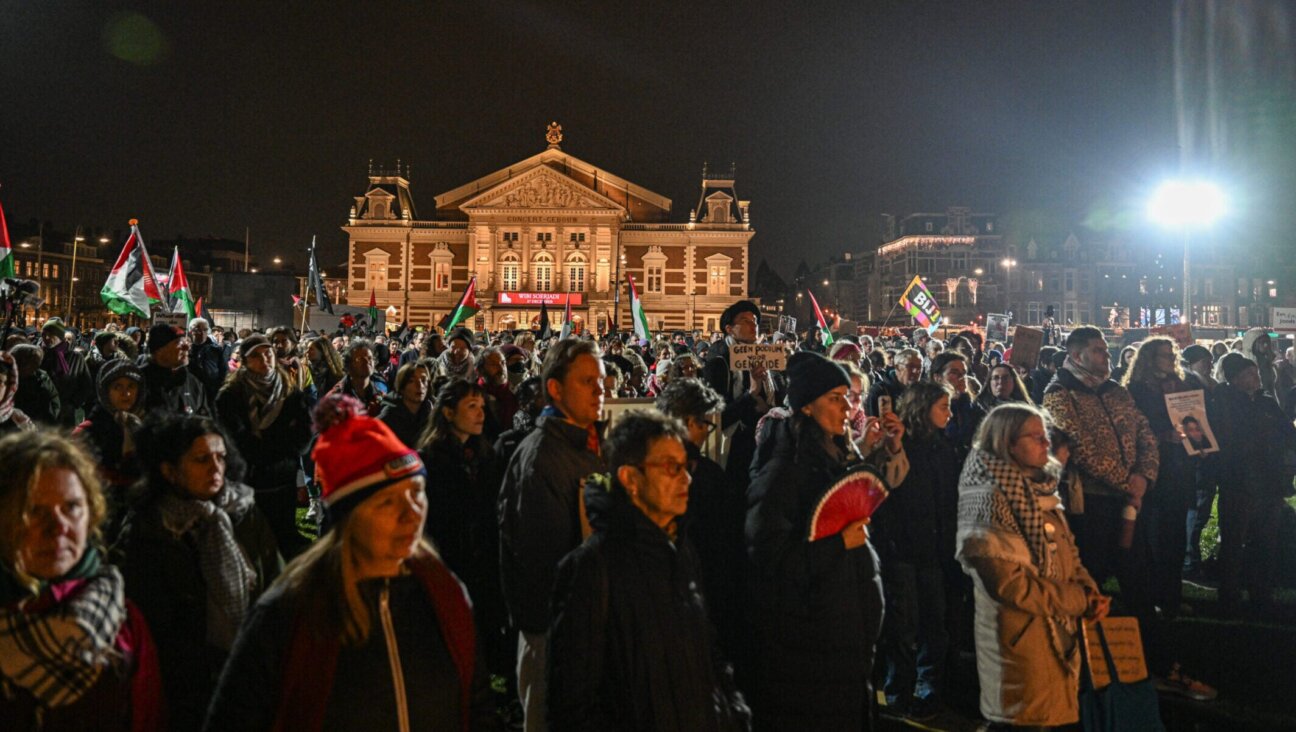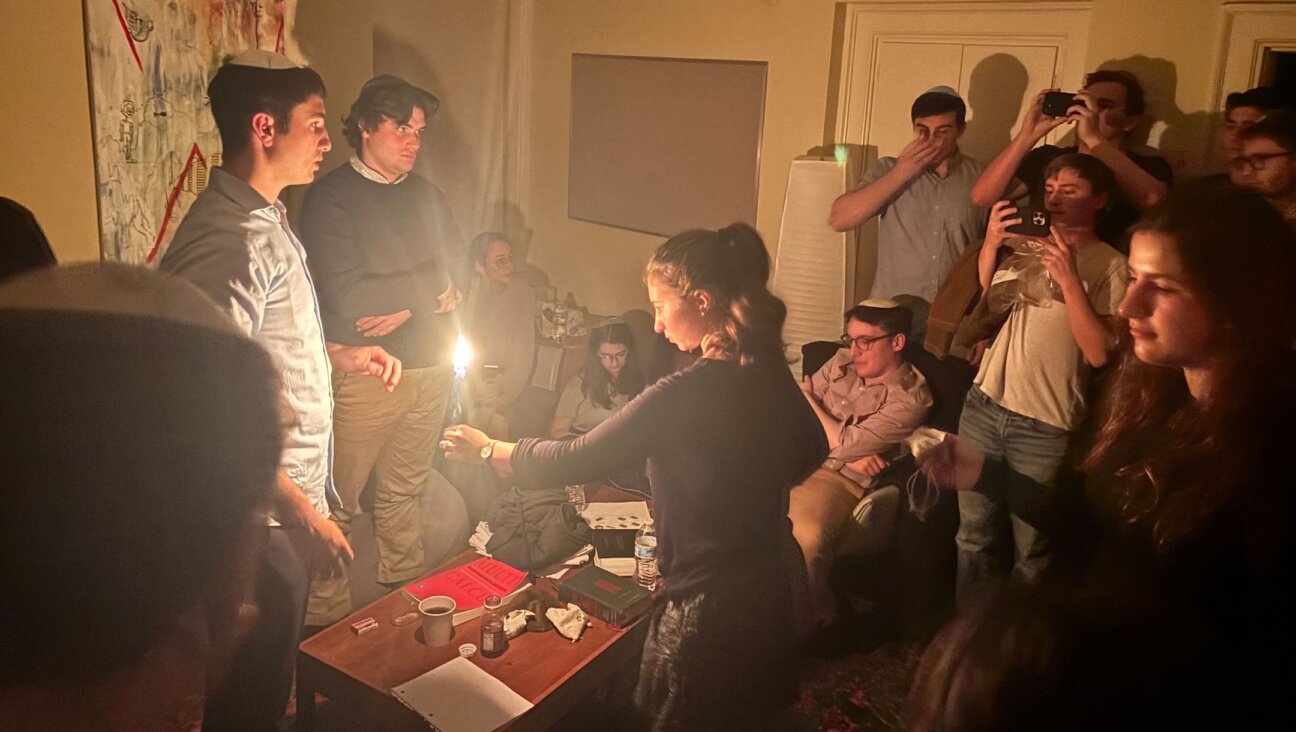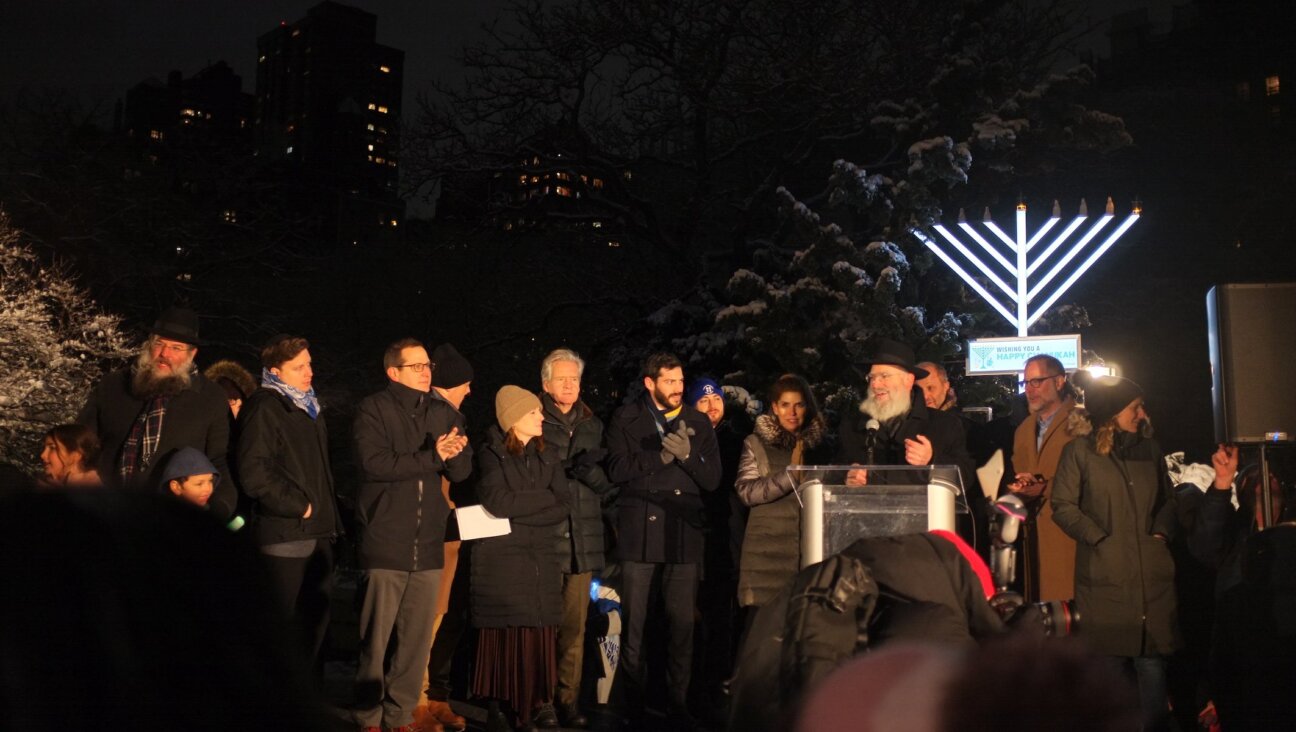Rocket Fire on Ashkelon Raises Stakes in Gaza Conflict
Israeli lawmakers pressed for massive military action in the Gaza Strip after a sizeable Israeli city came under Palestinian rocket fire this week and a man in Sderot was killed by a Kassam rocket.
Gaza Palestinians fired Katyusha-type rockets Thursday into Ashkelon, a coastal Israeli city of some 120,000 people about 10 miles from the Gaza border. The Katyushas, which have a longer range than the homemade Kassams regularly fired at Sderot, likely were brought into Gaza when the border between the Palestinian territory and Egypt was breached several weeks ago, Israeli experts said.
Israel responded this week with air strikes and the shelling of rocket crews in Gaza, killing at least 18 Palestinians on Thursday. Friday brought more exchanges of fire, with both sides reporting fresh casualties.
Matan Vilnai, Israel’s deputy defense minister, called on the IDF to carry out a “catastrophic” response to the attacks. Israelis consider the firing of Katyusha rockets at Ashkelon a serious escalation of the conflict, which has been on a steady boil for months.
On a tour of damaged areas Friday, Israeli Defense Minister Ehud Barak blamed Hamas but resisted the suggestion that Israel carry out a major ground offensive right away.
“Hamas is responsible for the deteriorating situation and it will bear the consequences,” he warned.
On and off since Israel’s withdrawal from Gaza in 2005, Israel has grappled with how to contain violence from the strip, which intensified after Hamas wrested control of the territory from Fatah rivals in June 2007.
Israeli media, opposition and coalition politicians all are calling on the government to hit Hamas hard. But Prime Minister Ehud Olmert is reticent to send ground troops into Gaza with no clear exit strategy or effective means of halting the incessant rocket fire on Israeli communities.
In recent weeks, the government has relied on blockading Gaza, targeting Palestinian militants for assassination, and stepped-up shelling and air strikes against targets in the territory.
But the extension of the conflict this week to Ashkelon, which until recently was out of the range of most rocket attacks from Gaza, raises the pressure on Olmert considerably.
A Hamas leader, Fathi Hamad, said Friday that Hamas’ rockets soon will be able to reach “any target in Israel,” according to Reuters.
Olmert, in Tokyo this week for the first official visit by an Israeli prime minister to Japan in 11 years, said that his government is determined to crushing the Palestinian rocket threat. Humanitarian concerns for Gaza’s population are a lesser priority, added Olmert, before returning to Israel on Thursday.
“We are at the height of the fighting,” Olmert said after a meeting with U.S. Secretary of State Condoleeza Rice, who also was in Japan. “We will make the terrorists pay a very painful price.”
Tzachi Hanegbi, chairman of the Knesset’s Foreign Affairs and Defense Committee and a member of the ruling Kadima Party, told Israel Radio on Friday that Israel should reoccupy parts of Gaza and topple the Hamas government.
Hamas political leader Ismail Haniyeh, who was the Palestinian Authority prime minister until he was deposed by P.A. President Mahmoud Abbas following Hamas’ violent takeover of Gaza last year, said any Israeli incursion into Gaza “would end in total failure for Israel, just like the rest of its operations in the past,” according to news reports.
Haniyeh and other Hamas leaders have gone into hiding in recent weeks, as Israel has threatened to target them for assassination. An Israeli air strike Thursday hit a site 150 yards from Haniyeh’s home.
Despite increasing calls to send the IDF into Gaza, the Israeli military’s assessment is that a full-scale land operation in the strip could cost Israel hundreds of soldiers’ lives and cause even more damage to the home front than the 34-day bombardment of northern Israel in the summer of 2006, when Hezbollah fired some 4,000 Katyusha rockets into Israel.













